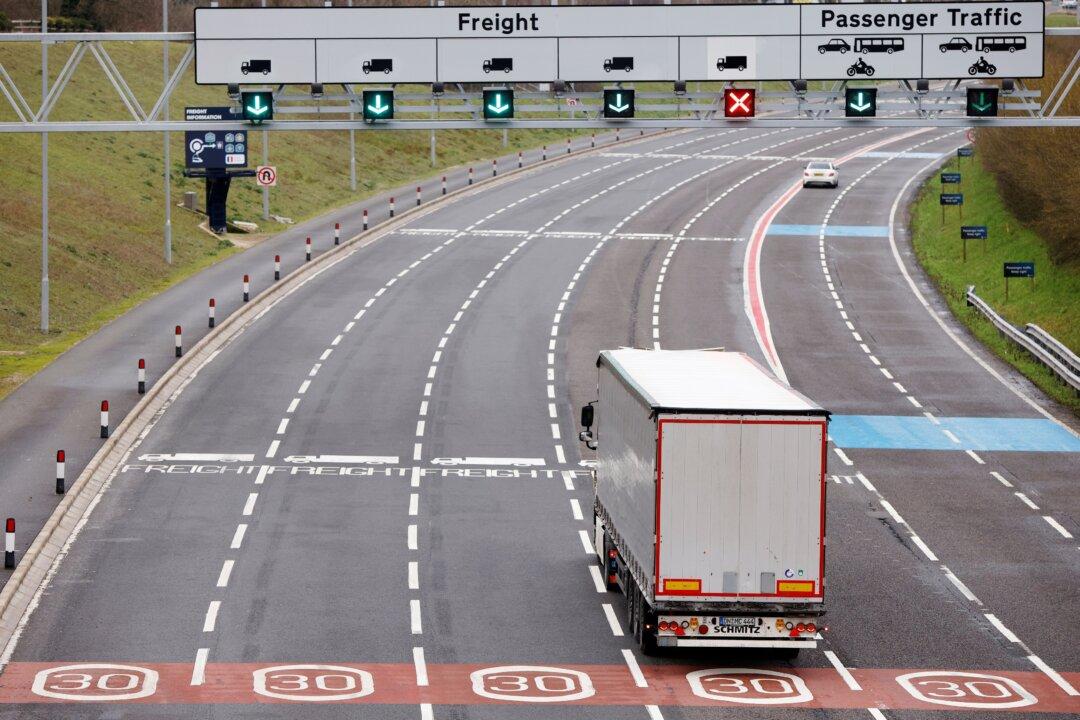LONDON—Britain on Thursday delayed the introduction of a range of post-Brexit import checks on goods from the European Union by around six months, saying businesses needed more time to prepare because of the impact of the coronavirus pandemic.
The British Retail Consortium welcomed the move, but said it was needed because the government was not ready and the required border control posts were “little more than a hole in the ground”.





